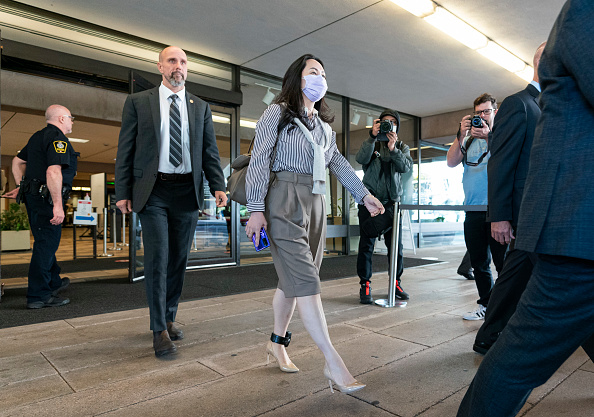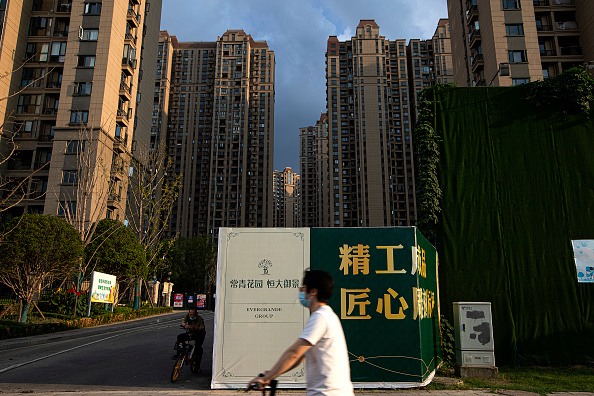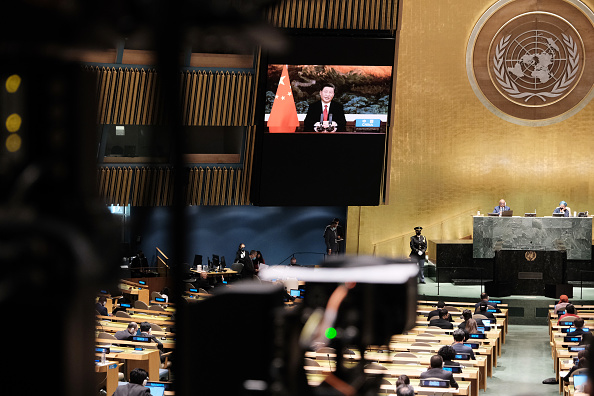
 Sign of Goodwill?
Sign of Goodwill?The U.S. Department of State reached a deal this week that will allow Huawei Technologies CFO Meng Wanzhou to return to China after almost three years of detainment in Canada. As part of a deferred prosecution agreement, Meng pleaded not guilty to Washington's charges today. The charges will then be dropped formally by December 1, 2022 if she adheres to the agreement, the terms of which were not disclosed. As the daughter of Huawei founder and chief executive Ren Zhengfei, Meng's arrest at the Vancouver International Airport in 2018 has been a source of deteriorating relations between the two global superpowers. And her release could serve to ease the tense relations with Beijing, such as within the tech industry, and indicate a reduction in hostility towards China under the Biden administration.
Meng's deal may also lead to the release of the two Canadian citizens that were detained in China shortly after Meng's arrest, businessman Michael Spavor and Canadian diplomat on leave, Michael Korvrig. Read more with, "Meng Wanzhou and Its Impact on Canada-China Relations," by Atul Dalakoti.
The news came as members of the Quad – the United States, Australia, Japan and India – were meeting in Washington today, where they are expected to announce agreements aimed at China regarding supply chain security, maritime domain, and more. While the agreement with Meng is likely to ease some tensions, the agreements from the Quad are likely to do the opposite, adding to Beijing's ongoing frustrations with being excluded from multilateral agreements and discussions. Chinese Foreign Ministry spokesman Zhao Lijian made his stance on the Quad summit clear, stating that "a closed, exclusive clique targeting other countries runs counter to the trend of the times and the aspirations of regional countries. It will find no support and is doomed to fail."
 An Ever-Grander Problem
An Ever-Grander ProblemAs fearful investors watch Evergrande, the world's most indebted development firm, lurch towards its possible demise, President Xi moved to deleverage the economy in a further push towards "Common Prosperity." With property inequality as a key part of that initiative, Beijing's latest regulations have focused on the property market. At the center of this discussion is Evergrande, which owns over 1,300 building projects across 280 Chinese cities, and is China's second-largest property developer by sales.
While the Chinese firm, with liabilities around $300 billion, missed a deadline to pay $83 million in interest on offshore bonds yesterday, the company will not default unless it is unable to make a payment on the interest within the next 30 days.
The company's unfettered expansion, matched with its deep debt and China's quickly-changing economic regulations, has sent the company into crisis-mode. And global economists are debating whether or not this may be China's Lehman moment — in other words, if Evergrande falls, who will fall with it? A collapse in Evergrande could cause injury to banks, homebuyers, retail investors, and builders. And with China leading in global growth, failure could have serious consequences for the global economy at a time when the pandemic is still raging.
With China busy celebrating the Mid-Autumn Festival, little word has escaped Beijing about its plans to mediate the situation. However, today, Beijing officials took into custody two executives from HNA — another corporate entity parallelling Evergrande's issues — foreshadowing more to come with direct government intervention.
 Relentless Diplomacy
Relentless DiplomacyThe 76th United Nations General Assembly gathered in New York this week in an atypical fashion, with multiple leaders, including Chinese President Xi Jinping, delivering pre-recorded addresses due to the ongoing pandemic. Xi's speech noted that China supports peaceful development for all people while also expressing frustrations towards America's general portrayal of the Chinese government. President Joe Biden used the platform to reassure countries that the U.S. can be a trusted ally despite tensions both with China and within NATO, following Washington's submarine deal with the UK and Australia that was announced last week. He also emphasized that it is time for "relentless diplomacy" after a long period of "relentless war," and called on leaders to think about the collective global future impacted by the pandemic and climate concerns.
Climate change dominated the UNGA, with an announcement from President Biden that the U.S. will significantly increase international climate financing for developing nations. This follows the failure of developed countries to mobilize a "long-promised $100 billion annually by 2020" to assist poorer countries tackle climate issues. Similarly, Xi Jinping also pledged that Beijing will increase support for clean energy in developing nations. He also announced that China will cease financing new coal-fired projects abroad, signaling a change in its Belt and Road infrastructure initiative and a move that is expected to help accelerate the global phase-out of coal.
While there's still outstanding questions about both pledges, secretary general António Guterres welcomed the announcements, as he had previously expressed concerns about the friction between the two countries and their lack of decisive climate actions leading up to the COP26 Summit in November. He noted that "phasing out coal was the single most important thing for keeping the Paris Agreement's temperature-limiting target viable."
Prepared by China-US Focus editorial teams in Hong Kong and New York, this weekly newsletter offers you snap shots of latest trends and developments emerging from China every week, while adding a dose of historical perspective.
- 2021-09-17 State of Play
- 2021-09-10 The Last Word
- 2021-09-03 Heightened Frustrations
- 2021-08-27 China’s Backyard
- 2021-08-20 Graveyard of Empires
- 2021-08-13 A New Crossroads
- 2021-08-06 Lowering Barriers
- 2021-07-30 A Diplomatic Stalemate
- 2021-07-23 A Climate for Change
- 2021-07-16 The Trade Game
- 2021-07-09 Existential Threats
- 2021-07-01 Centenary Celebrations
- 2021-06-25 Critical Crossroads
- 2021-06-18 Part of the Club
- 2021-06-11 Retaliatory Legislation
- 2021-06-04 "Defanging" Diplomacy
- 2021-05-28 The End of an Era?
- 2021-05-21 One Step Forward, One Step Back
- 2021-05-14 Drifting Trade Ties
- 2021-05-07 Time to Talk